 Science fiction and fantasy – are they really the same thing, but just with a bit of a twist? Let’s take a look at the differences – and the similarities. Both of them often feature worlds that don’t exist in reality, at least, not so far as we know. Both of them usually feature “magic”. In sci-fi they call this magic “technology”, but if it doesn’t actually exist then it might as well be magic. Both of them use strange creatures as part of the plot. In fantasy those creatures are elves, orcs etc and in sci-fi they’re alien beings or mutated viruses, but they are both the result of imagination, not reality. 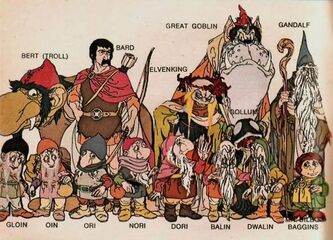 If you read our submission guidelines you will find that we don’t encourage authors to submit fantasy novels, but we’re happy enough with sci-fi. Given what we have said above, why would we not accept both – or neither? The author of this blog has read Lord Of The Rings (LOTR) three times and The Hobbit twice, so why does he have a downer on other works in the fantasy genre? It’s because so many authors of the fantasy genre write in clichés, or they are lazy.  Let’s take the clichés first. Orcs, elves, wizards, dragons, magic rings or swords. Does any of that sound familiar? About the only thing that’s original in so many fantasy novels are the names that are given to the main characters and, I have to say, even those have a very familiar ring to them most of the time. So, what about that accusation of laziness? Most of it is to do with the way magic is used in the books. Is the hero stuck at the bottom of a deep pit? Magic him out of it. Is the hero just about to be barbequed by a dragon? Magic him out of there. In fact, any peril that the hero finds him/herself in is fixed by the use of magic. And if it isn't magic, it's other special powers such as being able to see events far away or see into the future. 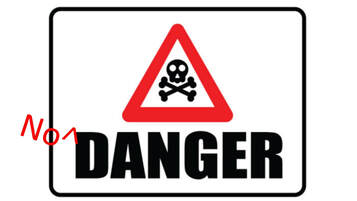 And that removes the drama. Once you know the author is going to save the hero’s life every time, using magic, there’s nothing to worry about. All tension is removed and the story becomes about as exciting as watching paint dry. The lazy author, therefore uses magic rather than trying to imagine some other way of allowing their hero to survive – or going back to re-write the plot in a way that no longer relies on magic to get the hero out of their fix. Ah, but LOTR uses magic. Gandalf’s a wizard and he uses magic a lot. And as for that ring – it’s total magic. Therefore, Selfishgenie Publishing, your argument is defeated. 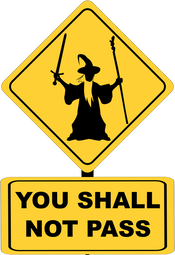 Yes, but think about how magic is used in LOTR. First of all, it is used very sparingly. If the problem can be solved using swords or guile, then swords or guile are used. Magic is always the weapon of last resort. But, more importantly, whenever magic is used, there is a price to pay. When Gandalf uses magic to fight the Balrog, it so exhausts him that he disappears from the book for a couple of hundred pages. When the ring is used to provide invisibility, not only does it place a great burden on the wearer, but it affects their personality. That is made very clear in The Hobbit, where we encounter its long-term user Gollum and at the start of LOTR with the way Bilbo reacts to having to give up the ring. 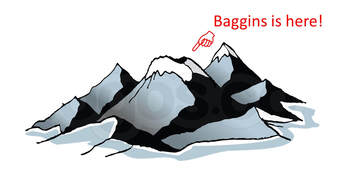 The ring also points a big fat finger at the wearer so that the Dark Lord can locate them. So, the ring and its powers have to be used sparingly. It is Frodo’s and Sam’s perseverance that gets them to Mount Doom in the end, not magic. It is about Frodo’s personal qualities, about why he was chosen for the task in the first place because, despite all temptations, he is the only one of the Fellowship of the Ring that can be trusted not to try to keep it for himself. Of course, there are fantasy writers out there who avoid both the clichés and the over-use of magic and rely on their characters to carry the plot, but we have to say that bitter experience has shown that they aren’t the authors who are submitting to Selfishgenie Publishing. You can try to prove us wrong, if you want, but excuse us while we roll our eyes.  So, what of sci-fi, surely it is just as full of cliches, yet we publish that. Substitute magic for non-existent tech and you have the same sorts of problems. Of course we do, guilty on both counts. Which is why we have just as much of a problem with poor sci-fi as we do with poor fantasy. However, some of the sci-fi authors we publish have actually tried to base their “magic” on basic scientific principles.  Reputable scientists have theorised about the sort of technology that is used in their books and suggested that it might be possible to create that sort of technology sometime in the future. No less figures than Einstein, Steven Hawking, Erwin Schrodinger and others have speculated on what sort of advances in science might be made to allow the use of new technology in the future. Not only have they speculated, but serious research is now going on into some areas of science that were previously labelled “fictional”. OK, some of it may never produce any worthwhile results, but the research isn’t being done on a whim. There are some basic scientific principles underpinning it.  And, of course, after the last 18 months, when it comes to killer mutant viruses we need say no more. And if you can have mutant viruses, you can surely also have mutant people. Now, please don’t get us wrong. We think that fantasy is a legitimate genre for any author to write in. The best fantasy sits alongside the best works of all the other genres. But, unfortunately, the sorts of authors who submit fantasy to us seem to lack the imagination to come up with anything original. And it is originality that sells books. Now, having read this far you may now be saying "That's just your opinion", and you will be right. But if you had to read the amount of cliched fantasy that we receive, you might share our opinion. If you have enjoyed this blog and want to make sure you don't miss future editions, plase sign up for our newsletter by clicking the button below.
1 Comment
 Have you submitted your book to agents or publishers and had it rejected? Have you ever asked yourself why your masterpiece was rejected? After all, you have read far worse books than yours, so why wasn’t your much better book accepted? Have you ever thought that it might be because you didn’t adhere to the submission guidelines? As publishers we receive a lot of submissions and one of the things that puzzles us the most is how someone who can write a 100,000 word novel can’t read a simple set of instructions.  You may wonder why adhering to the submission guidelines is so important. After all, it has nothing to do with the quality of your work. Your masterpiece will still be a masterpiece, even if you didn’t double space it, as the submission guidelines asked you to. We’ll answer that in this blog. Our submission guidelines are published on our “Contacts” page of this website. They are longer than they are for some agents or publishers. That’s because we’re trying to be helpful, so we tell authors in advance why we might not accept their masterpiece. That gives them the opportunity to take a look at what they have written and decide what sort of a chance they have of being accepted if they submit their work to us. We may not actually be the right publisher for them, so why waste everyone’s time?  But even if we are the right publisher, are they the right author? We have no way of knowing without setting them a little examination – but here’s the trick – we also provide the answers to the exam questions. And that makes it much harder for authors to fail. So why do so many authors send us into apoplectic fits of rage by not reading the answers? OK, I’m exaggerating for comic effect, but it is very frustrating when you open a submission and find, not the 10,000 words that were asked for in the guidelines, but the whole (expletive deleted) manuscript. And it's double line spaced when we asked for something else. I have actually emailed an author and asked him why he didn’t read our guidelines. He replied to say that he did read them. So I then asked him why, having read the guidelines, he had decided to ignore them. He replied that he didn’t think we were serious and they were just to discourage authors from making submissions. Yes, that’s right, we spend hours making things up just so we don’t have to read submissions. That’s how we stay in business, by not having any new material to publish. (sarcasm).  I didn’t use the word “examination” above by accident, by the way. So why did I use it? When you submit a book to an agent or publisher, it ceases to be “your book”. The act of submission turns your work into a collaborative project. Your name will still be the one on the cover of the book, but it won’t get to the bookshops without a lot of teamwork between you and the publisher. So, when you submit the book, the agent or publisher wants to know if you are the sort of person with whom it is going to be easy to collaborate. Trust us on this, but no author ever submits a book that is ready to go straight to press. They all require some degree of work to turn them from what they are into something that the readers will want to buy. The only difference between submissions by different authors is the amount of work needed to get from A to B.  The greatest authors ever to put words onto paper have gone through this process before you, so don’t think you are some sort of special case or genius who can go straight from submission to publication without stopping to do a few re-writes along the way. That’s where the publisher has to start spending money – without knowing if they will ever get any of it back. A publisher will pay an editor to work with you to make your book the best it can be, and that editor will earn between £20k and £40k per year. Freelance editors start at around £25 per hour, charging up to £54 per hour if more specialist services are needed. (comparable rates apply in other countries). That may well be more money than you, the author, will receive in royalties. So, the publisher (and the agent who will try to find you a publisher) wants to know if you are going to work with that editor, or work against them. Is it worth them spending £5k to £10k of an editor’s wages working on your book with you if you are going to ignore everything the editor suggests? "If you can’t be bothered to read the submission guidelines, are you really going to read the editor’s notes?"  Someone, I don’t know who, once said “You only get one chance to make a first impression.” Your submission is your only chance to make that first impression. What the agent or publisher sees when they open up your manuscript is when that first impression is made. If it is the right length and formatted the way the agent or publisher has requested it, they are going to start to think of the author in a positive way. If they asked for a synopsis but you didn’t provide one, then you probably didn’t read the guidelines, or you decided they didn’t apply to you. If they asked for a biography but you didn’t include one, they will wonder why you didn’t. If you haven’t done those things, the negative thoughts will start, which means the author’s work has to be so much better than the average before the agent or publisher starts to move across to having more positive thoughts.  So, we have devised an additional test for our authors. We don’t insist that authors use our formatting guidelines, we just suggest that if they want to impress us, they should use them (item 6 if you decide to read them for yourself). If the author responds to our suggestions, they get off to a good start with us. If they just submit the MS formatted the way they wrote it, then the start isn’t going to be such a good one. So, for your own good, if you are going to submit your work to an agent or publisher, please read and follow the submission guidelines because first impressions count for so much. After that, your writing talent will do the talking for you. Don’t get me wrong. The agent or publisher won’t make a final decision based on whether you have used the right line spacing or the right font. If the story is good enough it could be written on a brown paper bag with a blunt crayon and it will still be accepted. But if you want the agent or publisher to be on your side from the moment they receive your submission, you have to do what is necessary to get them there, by following the submission guidelines. And if you think following submission guidelines is for losers – good luck with your career in pizza deliveries. If you have enjoyed this blog, or found it informative and you don't want to miss future editions, just click the button to sign up for our newsletter. Don't Despair; Help Is At hand Just a note for all our readers around the world, although this blog is aimed primarily at our British audience (we’re a British business), the key messages in it are just as valid wherever you live, so please, continue to read as it will be of benefit if you have lost your job or are in danger of losing your job. Let’s face it, it’s been a rough 15 months and we’re still not out of the woods. And for a few people, things are going to be a lot tougher for a while. In 2019 the UK unemployment rate was around 3.8%. The current economic forecast is that it will rise to around 5.5% this year before starting to fall back again as the economy starts to grow once more. In 2019, about 32.41 million people were in employment, so a reduction of about 2% means that some 640,000 people have become unemployed already or will become unemployed this year. If you are one of them, you have my sympathy. I’ve been there and I know how that feels.  And if you are leaving school or graduating from university this year, that will also mean more competition for what work vacancies there are. So, this blog is aimed at you too. A lot of businesses have gone bust, throwing people out of work. As the country starts to return to “normal”, whatever that means, the present furlough scheme will end and more businesses will shed the staff that have been protected against losing their jobs up until now. So, if you are one of those 640,000 people who have already lost their jobs or are in danger of losing their jobs, or a student about to enter the jobs market, reading this blog could be the most important thing you read this year. "losing your job isn’t your fault" The first thing you must tell yourself – every day if need be – is that losing your job isn’t your fault. You have done nothing for which you should blame yourself. You may be surprised to find out that many people do blame themselves and it always hold them back. (If you have been sacked for misconduct then it may be your fault, but that is a different issue and will require different solutions) 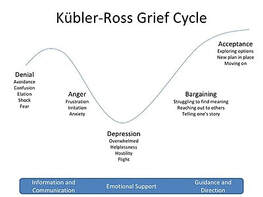 The next thing you should try to do is get over the loss of your job. You will experience all the feelings associated with losing a loved one, known as the grief cycle. Try to get through this as quickly as possible because if you don’t, it will hold you back in your search for a new job. It is quite normal to feel this, so don’t worry about it. To use a couple of well-worn cliches, you have to get past this and you have to move on.  The next cab off the rank is to understand that looking for a new job is a full time job in itself. If you aren’t spending the majority of your waking hours looking for work, you aren’t going to find it. Trust me, no one is going to come knocking at your door to offer you a job while you’re watching Phil and Holly on daytime TV. The job you want is out there somewhere, but you have to go out and find it, because it ain’t coming to find you. The next thing you must do is acknowledge that all jobs are temporary. Yes, you may have thought your job was permanent, but now you have been proven wrong. You knew this already but probably didn’t know that you knew it or you didn’t want to acknowledge it. "a job isn't for life"  You knew it because, wherever you worked, people came and people went. How many leaving presents have you been asked to contribute to in your working life? And I don’t mean for people who were retiring. A job isn’t for life. A job is for as long as you want to do it or until something better comes along – or until the company no longer needs you or can no longer afford you. So, if all jobs are temporary, then don’t sit around waiting for the perfect job to come along. It is a luxury you can’t afford right now. Instead take a temporary, if imperfect, job and keep looking for the perfect one. It’s better to earn some money than to earn no money. Believe me, living on state benefits will never cover all your costs. There is another reason for taking a temporary job while you continue looking. Employers don’t like to see gaps in your CV (or resumé, for some of our readers) while you were doing nothing.  It’s hard to convince a prospective employer that you are highly motivated and a ‘self-starter’ if you aren’t willing to flip burgers or deliver pizzas while you are waiting for him or her to offer you your dream job. Yes, I know that you worked hard for many years to gain the qualifications and skills that you now have, so you wouldn't have to flip burgers or deliver pizzas. But that is your pride talking. Pride isn’t going to pay the bills and pride will leave a nasty gap in your CV which you WILL be asked about at interviews. "It demonstrates to a prospective employer that you are willing to develop yourself." You need to prove your willingness to work by taking jobs that you wouldn’t normally consider. It’s about painting a picture to go with the story you want to tell at your interviews. If you really can’t consider doing a job that means taking a cut in salary or working unsociable hours or whatever your reason, then learn some new skills instead.  Firstly, it provides an explanation for what you were doing while you were unemployed but, more importantly, it demonstrates to a prospective employer that you are willing to develop yourself. That is a highly prized asset in today’s workplace. And it doesn’t have to cost you anything. There is an organisation called Future Learn who provide free on-line courses on a wide range of subjects and they can be accessed from anywhere in the world. Their content is also provided by some blue-chip global educational bodies. Most are suitable for non-graduates, so don’t be put off if you didn’t go to college. If you want a certificate to say you completed a course, you may have to pay, but some of the courses do provide them for free. Other training providers are available, but Future Learn is the best we have come across. Most of the courses can be completed in a day if you want to binge, but you can work at your own pace and at times that suit you eg when Phil and Holly are on TV. Learning a new skill is far more beneficial than having your brain turned to mush by daytime telly.  Stand out from the crowd with better skills Stand out from the crowd with better skills Hot topics at the moment are: collaborative and team working skills; leadership capabilities; business skills (always a good area for technical personnel to develop new skills); psychology (especially in relation to leadership), IT skills, creativity and innovation. Getting a few of those subjects under your belt will enhance your employability, especially if you can describe to prospective employers how you can use those new skills to help their business. But you are not alone in this job search. Help is available, which is why we are posting this blog.  One of our authors is something of an expert in this area and wrote a book on the subject. Yes, we admit it, this whole blog is nothing more than a thinly disguised book plug. But we really do want to help. The advice Robert Cubitt offers in “I Want That Job!” really does work. We know it works because we know people who have read the book and who now have new jobs. Above all it is practical, not theoretical. Just click the cover image to find out more. Now, if you have enjoyed this blog or found it helpful, be sure not to miss an edition by signing up for our newsletter. Just click the button. Don't Just Suffer - You Can Do Something About Writer's Block! Is writer’s block a real thing? Or is it something that people have invented to account for their lack of progress as a writer? Personally, I have always thought that writer’s block was something that was invented for the script of a stage play or movie as a way of getting a character, who is an author, out from behind their desk and into the world so they could have an adventure. But was I right? As I have a bit of a background in psychology, I went looking for a psychologist who could answer this question. Sadly, there hasn’t been much research done in this area. Most commentators seem to regard writer’s block as a blockage in the creative process and the way to treat it is the same as a plumber would use to unblock a pipe. But there are a couple of bits of research that suggest this approach is wrong. This is one of the research articles I found. This is only the “abstract” for the study, but it does provide the key messages.  Treat it the way a plumber treats a blocked pipe! Treat it the way a plumber treats a blocked pipe! While it concludes that writer’s block is real (yes, I was wrong - who could imagine that?), it doesn’t find that the creative process itself is the cause. The likely causes are much deeper rooted than that. It could be the way sufferers were taught to write, way back when they first started school. It may be caused by external pressures such as deadlines or feelings of being controlled, or feelings of not being in control. It could even be caused by a fear of being criticised. Yes. If you are anxious about what people might think of your writing, it may prevent you from writing in the first place.  Worst case scenario - you might need therapy. Worst case scenario - you might need therapy. So, if you suffer from writer’s block it isn’t about not having a good idea for a plot, or that you can’t develop your characters, or you can’t find the right word to describe the particular sort of rain that is falling. It may be because you had an overly controlled environment when you were first learning to write your name, which has carried forward into adulthood and you now worry about what your 1st grade teacher might think of what you are now putting on paper. So, this is a psychological issue, not a creative one. To treat it, you have to identify the cause and work it out of your system, so it no longer affects your writing. In the worst case scenario it might involve therapy, but for most people it probably just means acknowledging that there is a problem and finding ways round it. Living in the present, rather than the past or the future, is a good first step.  Overly controlled environment when your were learning to write your name Overly controlled environment when your were learning to write your name Looking at social media, I have observed that anxiety about whether someone’s writing is “good enough” is a common theme. In post after post, writers are seeking affirmation that their work is of value and of a good standard. Such reassurances are given but, of course, they are meaningless if the person giving the reassurance hasn’t actually read the work itself. And I think these worried writers know this, which is why the question occurs so often. But what about deadlines and control? They are one of the causes of writer’s block that have been identified. Deadlines are particularly ironic, in that the need to meet a deadline is, potentially, the cause of it not being met. The way around that one is for the writer not to agree to unrealistic deadlines, then for them to manage their time appropriately so they are able to meet the realistic target date. The journey of a thousand miles begins with a single step and it is taking that first step that is the important part of the journey – not the final step. Take control of the process and retain that control throughout. 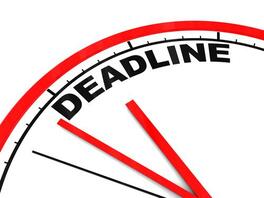 A lack of feeling of control is a major cause of stress in any environment. It has been cited as the cause for so much stress and as a trigger for depression. People who read or watch a lot of news, for example, are likely to suffer a higher level of stress because they start to worry about events that they are reading about or watching, but which aren’t within their control. Knowing that, I find it unsurprising how some of the exchanges on social media become so toxic. “Pick a side” is now the order of the day, but picking a side is likely to cause stress unless it can directly impact on the issues in question. And no, posting about an issue on social media isn’t activism. If anything, it is passivism because it doesn’t require anyone to actually do anything. If nobody has to do anything then change doesn’t happen so the feelings of lack of control are amplified, creating more stress  "WHY AREN'T YOU LISTENTING TO ME!?" "WHY AREN'T YOU LISTENTING TO ME!?" So, the stress of not being able to change someone’s mind through posting on social media comes out in the toxicity of the posts themselves. Effectively it is people screaming “Why aren’t you listening to me!” into a complete stranger’s face. If you feel stressed after being on social media, it is no surprise and the best thing you can do about it is not go on social media. But then you’ll experience FOMO* and that creates more stress. That is an extreme example, of course, but the same generic symptoms are to be found in writer’s block, with tight feelings in the chest or stomach, feelings of anxiety, insomnia, irritability, panic attacks et al caused by the feeling that the writer isn’t in control of what they are doing. BTW, you don't have to pick a side. No, really, you don't. If people try to force you to pick a side, it is for the benefit of their agenda, not yours.  You have to choose to change. You have to choose to change. But there are things that can be done to deal with that stress and by dealing with the stress, the writers can then focus on what actually matters, which is the creative process. There are a number of blogs on ways of dealing with writer’s block and they all say pretty much the same thing. So, if you’ve already read those, don’t think you’re going to find any greater enlightenment here. But if you’ve read those blogs and you’re still suffering from writer’s block, it means you haven’t heeded the messages and are still trying to find the “silver bullet”. Bad news - there isn’t one. Changing your behaviour is the only way to overcome writer’s block. And if you don’t want to change your behaviour, you’ll have to learn to live with writer’s block and being an unproductive writer. If you always do what you always did, you'll always get what you always got!" (Henry Ford). So, for those of you who want to change your behaviour, what can you do?  Stay off social media Stay off social media Stay off social media when you are trying to write. This may not be what you want to hear, but it may be what you need to hear. First of all, social media is a distraction and when you are trying to achieve anything (not just writing) you don’t need distractions. Secondly, so much that is seen on social media is negative and negativity is a great source of stress, which is the enemy of creativity. If you must have a daily fix of social media, leave it until after you have finished writing for the day. You might even treat it as a reward for a good day's work.  Get some exercise. Not only does exercise reduce stress, it also produces endorphins which make you feel better. They also stimulate mental activity. Aerobic exercise is best, but any exercise is better than none. Do something different. Instead of wrestling with the same problem over and over again, do something else. Another creative activity is good (drawing, music, cooking etc), but it doesn’t have to be. In fact, mundane, repetitious tasks leave the brain free to process other stuff. Those naff colouring books for adults that were all the rage a couple of years ago may actually be the cure for your writer’s block. But you could also try gardening, cleaning the house or washing the car.  Do something different Do something different Change your location. Many writers go to “retreats” or have a cottage in the country where they write, but it doesn’t have to be that grand (or expensive). Just taking your laptop to the coffee shop or the park can be enough of a change to take your mind off the blockage and allow ideas to flow instead. Don’t try to write your book, try to write something else instead. You’ll find thousands of writing prompts on the internet that you can use to stimulate the writing juices. Once you have started writing on an unrelated subject, it becomes much easier for the brain to stay in writing mode and allow you to move smoothly onto your book. You don’t even have to start a fresh page or open a new file. Just keep writing and edit out the irrelevant stuff (which actually got you started) afterwards. Don’t beat yourself up. You are human and suffer human frailties. If you can’t write today, there’s always tomorrow. Simply forgiving yourself is sometimes enough for your brain to say “Thank you. Now, I’ve had some thoughts about the start of chapter 15.”  Just do nothing Just do nothing Do nothing for a while – and I do mean nothing. Yes, staring off into space helps. Your brain will try to fill the gap in conscious activity and it may well fill it by giving you ideas about your plot. It’s far less stressful than pacing up and down worrying over the fact that you can’t come up with an idea. It's why we often have bright ideas while we're asleep or about to fall asleep. Cut yourself off from distractions. If you are stressed by the hubbub around you, it is harder to concentrate on what you should be doing (this applies in any workplace). If you can’t get the people out of the house, get yourself out instead. Libraries are nice quiet places to work, so take your laptop or tablet and visit yours. Change your habits. If you are struggling to write in the morning, switch to the afternoon, or the evening and vice versa. The time of day you work best is affected by your circadian rhythms so if your working times are out of synch with your “body clock” you are going to be less productive and less creative. This is hard if you have a “day job” as well as being a writer, but it may be necessary. It’s why some authors become successful only after they take the big gamble and quit their day job. (Just to be clear, we ARE NOT recommending you quit your day job) 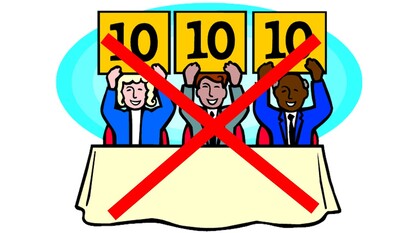 Your book doesn't have to be perfect at the first attempt. Your book doesn't have to be perfect at the first attempt. Don’t try to “binge” write. Stop writing at a point that is natural, such as the end of a paragraph, scene or chapter, rather than setting a finish time or a word count target. You’ll feel less pressure, which will allow your mind to do what you want it to and be creative. Conversely, if you are “in the zone” and the words are flowing, by all means keep going. But when you feel you need to stop, just stop. Don’t try to get the book perfect at the first attempt. Perfection comes later, once you have got the first draft written. This is another reason for not accepting deadlines. If you know you haven’t got time to do an edit later, you’re going to be too stressed to get the first draft written. Making progress on something that isn’t perfect is better than trying for perfection and not getting a single word written. So, there you have it. Writer’s block is real, but you don’t have to suffer from it. Doing something to overcome it is a choice, as is deciding not to do anything about it. But if you choose the latter course of (in)action, on your own head be it. * FOMO – Fear of missing out. The fear that while you’re not on social media you might miss the latest photo of Kim Kardashian (or whoever your favourite celebrity or “influencer” happens to be), or you may miss a meme of a cat playing the piano, or … well, you get the idea. If you have found this blog helpful and/or informative and you don't want to miss future posts, the easy way is to sign up for our newsletter. Join our thousands of subscribers and we promise not to spam you and you can stop subscribing at any time. All book reviews posted on the Selfishgenie Publishing blog page are the opinions of the reviewers, not those of the Selfishgenie management. The Secret Of My Success Is ...... Reading This Book 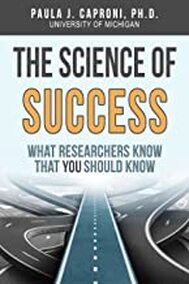 I’m not a great one for “self-improvement” books. Firstly, the only thing they really seem to improve is the author’s bank balance and, secondly, if they have changed someone’s life then there is a strong contextual element behind that change which means it's unique to that person. If the context is unique to an individual then what is advocated may not work for anyone else, so why buy a self-improvement book if it’s not going to work for me? However, “The Science of Success: What Researchers Know That You Should Know”, by Paula J Caproni Ph.D is different. Just to establish Dr Caproni’s credentials, she is a Professor of Business Studies in the Management and Organizations Department at the Ross School of Business at the University of Michigan. In academic terms, she is no lightweight because the University of Michigan is in the top 2% of universities in the world. What is different about this book is that it is based on decades of research by psychologists into how successful people behave that makes them more successful than others. It identifies the behaviours they have in common, which means that they aren’t unique or constrained by a particular set of circumstances. What is even more important is that these behaviours can, by and large, be learnt and applied by anyone. OK, if I don’t normally read books like this, how come I stumbled across it? You can blame Covid-19 for that. Because of the restrictions on movement placed on us by our government’s attempts to deal with the pandemic, I was filling some of my time doing a lot of on-line learning. Having just finished one short course I was looking for my next and I stumbled across this course, which bears the same title as the book. I signed up for the course and studied week one, at the end of which I was informed that there was some optional reading and it was this book. It wasn’t expensive (£3.78 on Kindle) so I bought it. "these behaviours can, by and large, be learnt "  As it turns out, if I’d just read the book I didn’t need to do the course as well, because the course is really just Dr Caproni telling the student the same stuff as is in the book. But I didn’t know that until I signed up for the course and what I start I try to finish. Which, it turns out, is an important behaviour when it comes to success. In reading the book I realised that I already did some of the things discussed – life-long learning is another one of the behaviours of the successful and my Covid inspired learning is part of that. That probably accounts, in part, for some of the success I have had in my life. I also realised that I had, at times, sabotaged my own endeavours by behaving in ways that got in the way of achieving success. Looking back over my life that also accounted for a lot. But this is a book review, not a confessional, so I won’t go into that. A common phrase often heard these days is “Change one thing!”. The good news is that, using this book, you can change one thing and see how it works out. You don’t have to swallow the whole book, you can make changes incrementally and see how they affect your life before you change something else. "Which, it turns out, is an important behaviour when it comes to success."  Besides, if you try to change everything at the same time you will probably overload yourself and that is going to hinder more than it will help. If that sounds like a long road to travel, you are right. It turns out that the ability to delay gratification (a dying personality trait in this world of instant gratification) is another behaviour that promotes success. So, if you don’t want to take the long road, you may be doomed to be less than successful. But the good news is that we are also encouraged to give something up, or modify the way we do it, in order to make time for us to do the new things we want to do. For example, if you decide you want to take more exercise, you might need to sacrifice some of your reading time in order to accommodate it. But that doesn’t mean giving up books, because you can listen to an audio book while exercising. Time management of that sort features quite heavily in some sections of the book. The very first thing Dr Caproni advises is to identify what success actually means for you (or, in this case, me). It may mean becoming a multi-billionaire, but it doesn’t have to. However you define success it has to be what you want and what you value, not what someone wants for you (or from you). So, some people will define it as being a multi-billionaire, but others may just define it as having a more satisfying job, being a valued member of a team, getting a promotion at work or having a happy family life. It doesn’t matter how anyone else measures success, it is how you measure it that’s important. "It doesn’t matter how anyone else measures success, it is how you measure it that’s important." In six chapters Dr Caproni takes us through the research into four different areas of behaviour that mark out successful people and how we, the reader, can learn those behaviours for ourselves and apply them in our lives.  Yes, there is a practical element to this. Reading about the research won’t change a thing for anyone. Only by making changes to our lives will we become more successful. To use a phrase I learned many years ago “If you always do what you always did, you’ll always get what you always got!” (Henry Ford) Or, to misquote Albert Einstein (who probably didn’t say it anyway) “Insanity is doing the same thing over and over and expecting a different outcome each time.” Within the book Ch 1 is a general introduction; Ch 2 deals with mindsets and how focusing only on results can constrain our lives; Ch 3 is about being or becoming an expert; Ch 4 focuses on motivation (yes, you do have to be motivated); Ch 5 is about the importance of relationships and Ch 6 is about creating an action plan to move yourself in the direction you wish to travel. “If you always do what you always did, you’ll always get what you always got!” (Henry Ford) Dr Caproni draws on real world examples of people who have made great strides in being successful. Some of the names will be familiar, some less so and at least one, a Chinese child, you will probably never have heard of. But each example used, demonstrates a different aspect of the behaviours that Dr Caproni is teaching. No promises are made of overnight success or achieving great wealth. It isn’t that sort of book. But within its pages are things that everyone (and I do mean everyone) can learn that will make them more successful and, importantly, happier people.  Because happiness and success usually go hand in hand; or so Dr Caproni tells us. Before you say that there are many successful people that aren’t happy, I have to both agree with you and disagree with you. Because you don’t know how those people measure success. They may never be happy because they define success as being the richest, the prettiest, the greatest (whatever) or something else. Which means they will never be happy if they aren’t that thing. Because there can only ever be one of those things with “est” at the end of the word. There can only be one richest person, one greatest athlete, one best actor etc and if that is your goal then you aren’t going to be happy if you fail to achieve it. But for those whose success is measured without being one of those things, then happiness is more likely. Again, Dr Caproni tells us why that should be and, generally, it has nothing to do with the size of your bank balance or being numero uno in whatever field you are in. "Because happiness and success usually go hand in hand" Considering that this book is based on psychological research, it is very easy to read. Dr Caproni has chosen her language with the lay reader in mind. There isn’t much in the way of jargon but, occasionally, Dr Caproni does rather labour a point; however, that is a very minor criticism. And, if you don’t want to buy the book, you can still sign up for the course for free and learn the lessons that way. It is presented entirely as video sessions, which some people might prefer. I have no hesitation about recommending “The Science of Success: What Researchers Know That You Should Know”, by Paula J Caproni Ph.D, to anyone who wants to make more of their life. To find out more about the book, click on the book’s cover image at the beginning of this blog. To read more book reviews like this, sign up for our newsletter so you never miss one. Just click on the button below. Character or Plot? It is a consistent debate in writing, whether plot comes before character or character comes before the plot. In truth, both have their part to play, but if you are going to invest a lot of time, where should you invest it in the first instance – on developing the plot or on developing the character(s)? I’m not here to try to persuade you to our way of thinking (which I’ll elaborate on in a moment). I’m just going to lay out why we think the way we do. If, after reading what we have to say, you still take the other view, that’s fine. It’s your book, you have the right to write it whichever way you want. But we are firmly of the opinion that characters have to come before the plot. We are so convinced of it that we use an equation to express it: Character + Conflict = Plot. In other words, if you have a good character and you give them a conflict to deal with, they will write the plot for you. That’s not original by the way. You’ll find it used on a number of creative writing courses and in books on the subject.  Do your characters look like this? Do your characters look like this? As publishers we get a lot of manuscripts (MSs) which have characters that are so two dimensional that they can’t be seen from sideways on. In fact, to describe them as two dimensional is to give them one dimension too many. The result is that we can’t bring ourselves to read beyond the first few pages of the MS. Why is that? It’s because we’re human. Humans are social beings (even if we sometimes like some “alone time” with a good book). We relate to other people and we form emotional relationships with them, both good and bad. It should, therefore, come as no surprise to discover that we also want to form emotional relationships with the characters we read about. In fact, for some people, their emotional relationships with characters in books transcend their relationships with real people. That’s something that the best authors of romantic fiction have always understood.  We need to feel some of these when we read! We need to feel some of these when we read! That means we have to believe in characters as people (or aliens or orcs or werewolves, depending on your genre). And that means giving them personalities. Without a personality a character is just words on a page. With a personality they are someone we fall in love with or admire or respect or, sometimes, hate. But those feelings don’t come about by accident. The author has to create the character traits that allow us to engage at the emotional level. Once a reader has become emotionally engaged with a character, it becomes important for the reader to find out what happens to them. No matter how absurd the plot may become (and we’ve read some really crazy ones), the reader must find out whether the characters live or die or find true love or boldly go or whatever they are destined to do. But it is more than that. The reader also wants to know what changes the characters undergo during their journey from the beginning of the book to the end. After all, we all know that life changes us in so many ways as we progress through it, so it is necessary for characters to change as well. There's even a technical name for this: it's called the "character arc".  A character is not just their appearance. A character is not just their appearance. Crafting good characters isn’t easy – but neither is it impossible. What authors have to remember is that they can see the character from the inside out as well as from the outside in. This is important, because it is how the character sees themselves that reveals so much about them. This is called their “internal monologue”. What people see from the outside is called the “external monologue”. It is an important part of the character’s personality as well, as it provides contrasts, but the internal monologue is where the reader really gets to know the character. And we all know about these two monologues already, because we have them ourselves. People say “With me, what you see is what you get.” But they very rarely are. In fact, in our experience, what you see is very rarely what you get. The external monologue is how the world sees us and what we allow the world to see. There is our physical appearance, of course; whether we are tall or short, slim or stout, light haired or dark haired and so on and so forth. But those things are very much the two-dimensional approach to characters. They tell us nothing about the inner person, the things we actually relate to on an emotional level.  Describe this character's external monologue in one word. Describe this character's external monologue in one word. Let’s face it, we’ve all met someone really hot looking and then discovered that there’s not a lot going on inside. We call these people shallow for a reason. What readers want is depth. So, there must be more to the external monologue than physical appearance. There are also the person’s external behaviours: the face they show the world. Are they cheerful or sombre? Are they optimistic or pessimistic? Are they outgoing or shy? Are they confident or underconfident? All of these things can be expressed through behaviour – and a whole lot more than those. Think about the last stranger you met and conversed with for any length of time (thanks to Covid that may now be a bit of a distant memory). Perhaps you met them at work, or at a party or in a pub. You might even have been trapped in an elevator with them. It doesn’t matter. During your conversation with them, you will have formed opinions about them. What was your opinion? What behaviours did they display, or what did they say, that caused you to form that opinion? Some of the things I have listed already may have given you clues, but you may have seen or heard things in the person that you want to add to that list. When describing a character to a reader, those are the sort of things that start to add depth. It gives the reader an idea of how the other characters in the book will see and interact with each other. After all, if you can see these qualities (or lack of them) then the other characters in the book must also be able to see them. If the other characters can’t see them it’s the author’s fault, because they are the one who created the character. 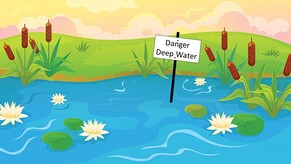 What readers really want is hidden depths. What readers really want is hidden depths. The internal monologue, however, is far more revealing, because it tells us how the character sees themself. That happy, confident person cracking jokes at the party may, actually, be a seething mass of misery and insecurity on the inside. The importance of the internal monologue is that it will determine how the character deals with the conflicts that occur within the plot. If they are brave on the outside but a coward on the inside, they are going to want to run away from the conflict. But their external image means they can’t because that will destroy their reputation. So how do they deal with that? That is, perhaps, an extreme example, but the character will have internal conflicts to deal with on top of the external conflicts you create and that makes the plot far more interesting. Indeed, there are novels that deal with nothing other than the way characters struggle inwardly to relate to the world in which they live. So, our thesis is that interesting characters engage the reader’s attention far more readily than the plot.  Conflict brings characters to life. Conflict brings characters to life. And then we get to the conflict. We’ve already mentioned the character’s potential internal conflict(s), but the plot usually emerges from external conflict(s). Until you have established what that conflict is, you can’t know how the character will deal with it, so you have no plot until you have established your characters and your conflicts. You may be thinking “my plot doesn’t have a conflict because it’s about ….” All we can say is that if you haven’t got conflict, you haven’t got a plot. But you have to understand that conflict comes in many different disguises. There are the big conflicts: good vs evil, right vs wrong, justice vs injustice and so on. There are conflicts of ideas. All political and religious divisions are a conflict of ideas. Then there are the smaller conflicts, such as competition for a promotion at work or sibling rivalry over a parent’s affections. Those are all examples of people in conflict with people.  There are other kinds of conflict. There are other kinds of conflict. But there are also conflicts with circumstances. For example, if a pair of lovers are separated by fate, that is a conflict and their fight to overcome that conflict is how they find their way back to each other. Other conflicts relating to circumstances are stories of survival against the odds, whether it is poverty or an earthquake or a rampaging bear that’s the problem. We have all come across the “by-stander”; the person who can watch a conflict unfolding but doesn’t want to get involved. In a book, that can’t happen, at least not to the main character(s). But they have to have a reason to get involved and that, usually, comes from their personality - which you have created. 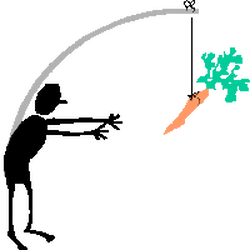 What is your character's motivation? What is your character's motivation? OK, it is some people’s job to get involved, like soldiers in wartime and police in criminal investigations, but in many situations the character(s) need some sort of motivation to get involved. And the character(s) can’t have motivation unless the writer knows what it is. And the writer can only know what the motivation is if they have already constructed the character based on their internal and external monologues. So, for us it is a simple chain of events. Create the character(s) in order to provide motivation, decide what conflict(s) they will have to deal with (both internal and external) and then you have a plot, which can then be developed to its satisfactory conclusion.  If you create the plot first, you have to reverse engineer the character(s) so that they become involved in it. This generally results in a badly drawn character because the author only pays attention to those elements of their personality that require the character to get involved. You need a warrior to complete a quest, so you create a warrior. But the warrior doesn’t have much of a personality, because they are a stereotype, being dropped into the plot like photoshopping in a stock photo from an image library. The Princess (or the Prince) then falls in love with the warrior (and vice versa) because the author wants them to, not because they have identified any unique qualities that the author created. And then the reader doesn’t find that relationship believable because they can’t see the mutual attraction. If you think about real life, we don’t fall in love with a warrior or a Prince or a traffic warden, we fall in love with a person who happens to be one of those things. I didn’t fall in love with my wife because she was a telephonist (archaic term - look it up). I fell in love with her because she was clever, funny, interesting to talk to and a whole lot more. And it is those sorts of qualities, and others, that your readers have to fall in love with. I don’t know whether we have convinced you that character has to come before plot (feel free to comment below), but we have made our case. But if you are an author considering submitting your MS to us, please know that the most likely reason for us to reject your MS is because we don’t find your character(s) interesting enough to engage our attention. We won’t know if your plot is any good because we haven’t read that far through the MS to find out. Sorry. A couple of other things for you now. Firstly, we have a 9 book sci-fi box set of The Magi series available right now, but you can download the first book for free as a "try before you buy" offer. Just click on the button below to get your copy.
Secondly, if you have enjoyed this blog and want to keep in touch with future blog posts, then the easiest way is to sign up for our newsletter. We promise not to spam you. Just click on the "newsletter" button. Can Anyone Become An Author?  After “What do publishers actually do?” (see previous blogs for answers) the question we get asked most frequently is “Can anyone become an author?” That’s actually quite a big question to ask. It’s a bit like “Can anyone run 100 metres?” While the factual answer may be yes (with caveats about physical constraints), we could add that the vast majority of people will never run that distance faster than Usain Bolt; or even half as fast as Usain Bolt. The same applies to being an author. Anyone who can string words together to make an understandable sentence can, theoretically, write a novel. But it doesn’t mean they can write a novel that actually sells enough copies to make it worth the author’s time and effort writing it. For that you need talent. 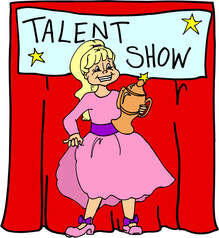 But the good news is that talent can be learned. Did you know that? The “natural talent” that most people are born with will only take them so far. Just because someone has learned to play the violin by the age of 3 doesn’t mean they will ever play the Albert Hall (or Carnegie Hall for my US readers). To be really good at something requires far more. It isn’t going to happen overnight, but if someone has the willpower and the motivation to learn, they can develop the skills necessary to write a book. It might take years of study and practice, but it is achievable. OK, it helps to have some basic skills. A wide vocabulary is an essential. Readers get bored of seeing the same words repeated page after page. They want variety. But a vocabulary is something that can be acquired. All you need to do is learn a new word every day and practice using it in context. That doesn’t sound so hard, does it? "the average person uses only around 20,000 words regularly" 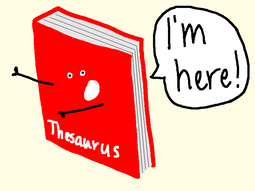 So why do we receive so many submissions that display a very narrow vocabulary? There are 171,146 words in the English language and more are added each year. If you’re an author of historical work there’s are another 47,000 words that are obsolete, but are still available for use. But the average person uses only around 20,000 words regularly. The average 8 year old has a vocabulary of about 10,000 words, so between 8 and adulthood we only learn to use another 10,000 words. Essentially this shows that some authors are in too much of a hurry. They want to tell their story without taking the time to learn the best words to use. But that is self-defeating, because a story that doesn’t grip the reader is one that will never be read. But it’s not just about vocabulary. Children that enter spelling bees have extensive vocabularies, but it doesn’t mean they will ever be good story tellers. It also helps to have a basic grasp of sentence construction and grammar. I'm not going to labour that point too much, because in our view it is better to split an infinitive than to write a clumsy sentence just so you don't have to split an infinitive. But at least learn enough to know that you are splitting an infinitive!  There are many courses available on creative writing. It isn’t our job to advise people which ones to take, because some of them charge fees and we don’t want to steer people into spending money with one organisation rather than another (at least, not without receiving a commission). But we can recommend courses that are free. This one is a good starting point for the would-be author. It’s called Start Writing Fiction and you can sign up for it from anywhere in the world. If you think you have nothing to learn from those sorts of courses, then ask yourself why you are reading this blog in the first place. But what really makes an author, after they have learnt the basics? Practice!  Practice, practice and more practice. And then, when you think you've finished practicing, practice some more. Earlier I mentioned Usain Bolt and his prowess on the running track, but he wasn’t born to greatness. He had some physical advantages, but no more so than many other children. What he did though, was train and train hard; ie, he practiced. No one ever became good at something, be it running, drawing or playing the cello, without practice and the same applies to authors. "And then, when you think you've finished practicing, practice some more." One of the problems with reading great authors is that we see their work at its best. We don’t see the years of practice they have put in to get to that level. The years of attending writing courses, retreats and workshops; the years of scribbling away in corners practicing their skills while everyone else was out having fun. Their book may be in the bookshops, but it didn’t arrive there fully formed at the first attempt. OK, maybe some did, for a lucky few authors, but for the vast majority it is the culmination of years of earlier practice; it may not have been called that, but that is what it was. There are very few authors who have the ability to write the first draft of a book and submit it to a publisher or agent and get it accepted. The authors that do succeed in getting their books published are those that have practiced the art of writing for a considerable period before attempting their first novel. 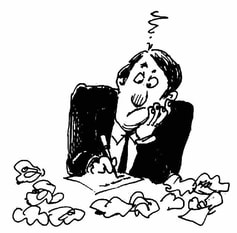 There are a number of ways that can be done, but we would suggest that you start writing just for the fun of it. Pick a subject and construct a story around it. There are plenty of writing prompts available on the internet to get you started. The next thing to try might be writing the same sentences or paragraphs several different ways – especially experimenting with new vocabulary – and seeing which work the best. You would be surprised how the impact of a paragraph can be changed, for better or worse, with just a few minor alterations. There’s no need to write more than a set number of words. You could start with 100, then 500, move up to 1,000 and then head for the dizzy heights of 10,000. If you can’t write a story that makes it to the 10,000 word mark, then it is unlikely that you will be able to write a full-length novel. But there is a market for short stories, so you could concentrate on that. Just as important as practicing is the quality of the practice itself. 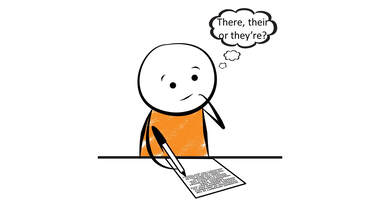 Practicing the stuff that the author finds easy isn’t going to improve their writing. Practicing the stuff that is hard is what brings about improvement. So, if the author hasn’t got an extensive vocabulary, practice allows them to extend it. If they aren’t great at developing believable characters, it is something that can be practiced. Great sports stars don’t spend hours a day practicing the things that come easy to them – they spend hours a day practicing the things that are hard for them. The same applies to any discipline: music, acting, business management, flying aeroplanes – and writing. Research into what creates successful people has demonstrated this time and time again. But practicing by itself doesn’t tell anyone anything. Authors need to know if what they are writing is any good: what is working and what isn’t. That way they can focus their practice on the things that don’t work and build on the things that do. For that they need a network of people who will provide them with honest feedback. "But practicing by itself doesn’t tell anyone anything"  Which is where writers’ groups come in. Most communities have writers’ groups, but you can also join on-line groups. Which is where personality tends to enter the equation. Some people don’t like meeting strangers and some don’t like receiving adverse criticism. I’ll deal with the two things separately. On-line groups help because you don’t actually have to “meet” anyone. But if you can’t discuss writing and put your work forward for discussion, it is unlikely that you will ever get the feedback that tells you where you can improve. And if you don’t get that, you have no way of knowing if your work is good enough for publication. If you are a naturally shy person then it is something you are going to have to overcome if you ever want to develop as a writer. Some people try to work around this by asking their friends and relatives to read their work. Not a good idea. 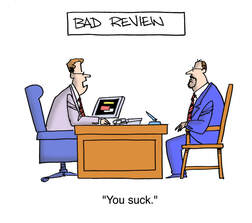 For an author to develop they need a “warts and all” criticism of their work; quality criticism. You are probably not going to get that from friends and family. They love you and they want to help, but their help is usually a hindrance because they will tell you what they think you want to hear, not what you need to hear. You learn the most from your mistakes, not from your successes, but if people won’t tell you about your mistakes, for fear of hurting your feelings, you learn nothing. In short, authors have to seek out the harshest critics. It’s the only way to get the feedback that is the most valuable. It hurts to be told “You suck!”, but it’s better to be told that by someone that you have asked to provide feedback than it is to be told by readers who have paid for your book! Because they certainly won’t pay to read another. Trust us on this. We get flooded with poor quality manuscripts and when we feedback on them, pointing out their flaws, we often get a reply back telling us how the author’s Mum or the author’s partner or the author’s mate down the pub really loved their story, so we must be wrong. If not that, we get very defensive responses trying to explain why the author did things their way. Fair enough – it’s your book, but don’t expect us to agree with you – or your Mum. If you are the sort of person who doesn’t like criticism (and there are many) then it is probable that you won’t be able to work with a publisher anyway. Because it is the publisher’s job to tell you if your book is any good or not, because they can only make money out of good books and every time they publish a book, they are laying their reputation on the line. The publisher will assign an editor to work with the author to get the book ready for publication and if the editor can’t provide critical feedback to the author, the book will never see the light of day.  J K Rowling - allegedly rejected by 12 publishers. J K Rowling - allegedly rejected by 12 publishers. Having a publishing contract doesn’t guarantee an author will be published (did you know that?). Because the terms of the contract will stipulate that the publisher has the final say on whether or not the book is good enough for publication. Which requires the author to accept criticism and make changes if the editor suggests them. I use the verb “suggest” because “tell” sounds a bit blunt, but that’s what the editor is really doing. OK, publishers aren’t perfect and they may not get it right all the time. 12 publishers are rumoured to have turned down Harry Potter before Bloomsbury signed J K Rowling – so those 12 got it wrong. But all publishers know the difference between a stinker and a good book and, sadly, we see too many stinkers. And that’s because so many authors don’t realise that writing a decent story is actually much harder than it looks and it takes years of practice to succeed. Which is a shame because, in most cases, the author could have produced better work if only they had taken the time to learn how to do it properly and then practiced what they learnt. So, consider this: Your book isn’t selling and those few copies that do sell aren’t getting good reviews. Is it the fault of the reader, or the fault of the author? If you think it is the fault of the reader, then it is time to re-think your life choices, particularly the ones relating to being an author. Yes, anyone can become an author, but the successful ones take the time to learn how to be a good author, because no one is going to read a bad author. If you found this blog interesting and/or helpful and you want to make sure you don't miss the next edition, just sign up for our newsletter by clicking the button below. Is Being "Clever" Enough To Ensure Success?  Do you struggle to achieve success in your chosen field? Some people do. Despite being “clever” in academic terms and passing lots of exams, some people find that this doesn’t translate into success in the workplace – or in other aspects of their lives. There has been a huge amount of research carried out on what makes some people successful and why some people, who you might think should be successful, just aren’t. These can be the people who did very well at school, passing exams and earning plaudits. But when they get into the workplace their trajectory slows down and, sometimes, stalls completely. While others, who didn’t do so well academically, move their careers forward over time, leading to observers sometimes saying “Wow, I never expected him/her to rise that high!”. Of course, some “clever” people do become very successful, but others don’t. Just an aside, Britain’s most famous Prime Minister, Winston Churchill, didn’t do too well at school and his teachers didn’t think he would ever amount to much, compared to his peers. “Wow, I never expected him/her to rise that high!”  There are many reasons why some people are successful and others aren’t and they have little to do with intelligence. Hard work plays a part, as does seeing opportunities when they present themselves - what we might call “luck”. But one of the main reasons is the way we see the difference between nature (what we are born with) and nurture (what we experience during our lives). Consider these questions. There are no right or wrong answers but choose between A or B for each one.
If you chose more A answers, it is probable you have what is called a “fixed” mindset (nature). If you chose more B answers, you probably have what is called a “growth” mindset (nurture). 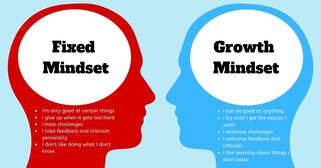 A fixed mindset tells people that they are good at what they are good at and shouldn’t try to do things they aren’t good at. A growth mindset tells people that they can develop existing skills and also learn new skills, which means that they can become more skilful over time. Does this matter? Actually, when it comes to success, it does, What has this to do with publishing? We’ll tell you that at the end of the blog. So, please, stick with us. People with growth mindsets tend to be more successful in life than those who have fixed mindsets. This has less to do with “intelligence” and more to do with a willingness to learn. There are several reasons why this should be. "People with fixed mindsets put artificial boundaries around themselves"  As the 17th century poet, Richard Lovelace, wrote "Stone walls do not a prison make, Nor iron bars a cage". People with fixed mindsets put artificial boundaries around themselves. For example, one of the classic expressions we hear is “I’m a people person.” In other words, “I’m not going to get involved with anything technical.” People may see themselves as good at one particular thing, or a narrow range of things, but nothing else. We might call this their “comfort zone” and they are reluctant to step out of it. But people with a growth mindset don’t impose those sorts of boundaries on themselves, so they are more likely to invest in their own learning, which allows them to develop new skills which they can use at work - and in life. This allows them to take on work which people with a fixed mindset will avoid. People with a fixed mindset will learn, but they usually focus their learning on subjects they know they are good at, eg someone good at maths will study more maths rather than branch out and try to learn about psychology. 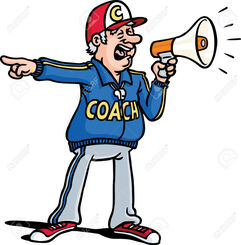 People with growth mindsets are more likely to engage in the coaching and mentoring of their teams, which means that their teams perform better, which benefits the company. The coach then gets the credit for developing their staff – they become recognised as a leader. People with fixed mindsets, on the other hand, will restrict people’s development activities to those necessary for their core duties, which means their team doesn’t develop new skills. The team becomes less flexible and less adaptable to sudden changes in circumstances. That can result in the “leader” being seen as the problem, which in turns leads to their career stalling. The fixed mindset leads people to take on work that is easy to do, which they can be sure of completing and earning easy praise. People with growth mindsets aren’t so afraid to take on challenging tasks, because they know they will learn from them. They will take the praise if it’s offered, but they are more interested in the challenge. "People with growth mindsets are more likely to seek out negative feedback" People with growth mindsets are more likely to take risks at work. This means that they rise to challenges that people with fixed mindsets will avoid. Again, it brings them to the attention of their managers, but that isn’t why they do it. Risky projects are more likely to present learning opportunities, which is beneficial to personal growth. And, hand in hand with risk, goes reward.  People with growth mindsets are more likely to seek out negative feedback than people with fixed mindsets. Negative feedback allows the individual to identify their weaknesses and work on them. Just attending to positive feedback doesn’t teach anybody anything. It’s why candidates attending job interviews are often asked about their weaknesses; it reveals the candidate’s attitude to personal growth. Fixed and growth mindsets tend to be established early in life. Children who are constantly praised for their results want more praise, so they focus on the things they are good at, where they can be sure of producing good results. But children who are praised for their effort rather than for their results, are more likely to develop growth mindsets. They know they will be praised for trying, even if they don’t always succeed, so they are more likely to keep trying. This encourages a risk-taking mentality and risk taking usually results in personal growth, one way or another. Unfortunately, teachers and parents are often results focused, rather than effort focused  This behaviour has been demonstrated in numerous research projects where those praised for trying, rather than for results, have tended to make the biggest improvements in their performance over time. It’s as though trying drives achievement, whereas consistent easy results drive complacency. If you are a parent reading this, don’t let me put you off praising your children for getting good results. But make sure that they know it was the effort that they put in that got them the results, not some innate and fixed “intelligence”. It is better to replace the words “clever” or “smart” with “hard worker”. And if their results weren’t quite as good as you had hoped, make sure you praise the child for their effort anyway and play down the actual results so they don’t become afraid of making mistakes. 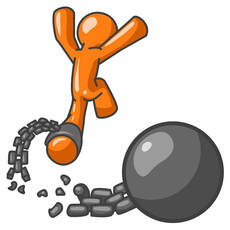 It should come as no surprise that the world’s most successful companies are the ones that focus highly on staff development and learning. It is the key to innovation and innovation is the key to the future success of companies. But people with fixed mindsets don’t invest much in development and learning because they don’t think they need to, because they have always been told they are “clever”. The good news is that if people set their minds to it, they can change these early mindsets by making a conscious effort. Having a fixed mindset isn’t fixed for life! But it does need people to open their minds up to the possibility that they aren’t quite as “clever” as they have always been told – regardless of what it says on their diplomas. "Having a fixed mindset isn’t fixed for life!" If you have read this far you probably have a growth mindset and we could have predicted that you would stick around. The growth mindset in your make-up would have wanted to learn everything you could from this blog. Those with fixed mindsets stopped reading far earlier, shuffling off muttering about “psychobabble” and returning to do something easy which will earn them quick praise.  Earlier in the blog we asked “What has this to do with publishing? Now it’s time to answer that question. The answer is that the best authors aren’t the ones who do only what they are good at. They are the ones who take risks and learn from their mistakes. An author with a growth mindset will hunt down the toughest critics to be their beta readers, because it is those critics who will provide the most valuable feedback. Authors who rely on friendly beta readers or, worse, relatives to be their beta readers are displaying fixed mindsets, because those critics will provide the most positive feedback. But it doesn’t stop there. If an author has had their manuscript (MS) rejected by agents or publishers several times but hasn’t sat down and examined the MS and asked themselves what those rejections mean, they are displaying a fixed mindset. If their friendly beta readers have given them only positive feedback, then it must be the agent/publisher who is wrong for not appreciating their masterpiece. 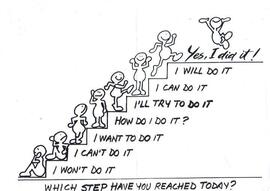 The authors with the growth mindset will be treating each rejection as a learning opportunity and will be trying to find ways of re-writing their MS to make it more appealing to agents and publishers. Guess which type of author is more likely to end up with a publishing contract! Here at Selfishgenie Publishing, we don’t just reject an MS without any explanation. We provide feedback on why the MS didn’t appeal to us. In short, we become a highly critical beta reader. That feedback may not be welcomed by the author, in which case they will continue to receive rejections. But for those authors who recognise the value of the feedback, it is their opportunity to improve their MS and enhance their skills as an author. It is a step on the pathway to success. You’re welcome. But, of course, it also benefits us because next time the MS is submitted it will have been improved upon. OK, sometimes the improvement is so great that the author is snapped up by a larger publisher, but that’s a risk we are willing to take. If you have enjoyed this blog and want to be sure not to miss any future editions, just click the button below to sign up for our newsletter. We promise not to spam you. And, just a hint, if you have a growth mindset you are going to want to find out more. This week’s blog features reviews of two books, neither of which are published by Selfishgenie Publishing. Both are by the same author, Rohini Sunderam. The reviews are submitted by one of our authors, Robert Cubitt. All book reviews posted on the Selfishgenie Publishing blog page are the opinions of the reviewers, not those of the Selfishgenie management. Rohini Sunderam was born in Halifax, Nova Scotia but now lives in Bahrain. She describes herself as a “semi-retired advertising copywriter”. She is very active in writing groups in Bahrain and was shortlisted for the Atlantis Short Story Contest in 2013. She was also longlisted for the WOW Women on Writing CNF Essay contest for Q4 2020. A Little Gem For The Romantics.  When it comes to the genres I read, I have to admit that romance and love stories aren’t the first shelf I go to in the library, but I do occasionally dip my toe into those waters and in the case of “12 Roses For Love”, by Rohini Sunderam, I’m glad I did. This collection of short stories is a real gem. Firstly, while their theme is love and romance, they are far from traditional in their approach. If I tell you that one of the stories has an armchair as its central character, you can probably understand what I’m getting at. The stories are set in different time periods and involve different characters (except for two of them), but they all have love at their core though, as already mentioned, the nature of that love is sometimes unconventional. "The stories are beautifully told" The stories are beautifully told, with great use of language. There is a kind of poetry behind them. The book isn’t long, only 61 pages, but that is long enough to tell the 12 short stories that gives the book its title. Why 4 stars rather than 5? I felt that one or two of the stories were a fraction short of being complete. They left unanswered questions which, on a personal level, I found frustrating. But that may be the author’s intention, to leave an air of mystery for the reader to enjoy and other readers might feel that the stories ended in just the right place. I certainly have no hesitation in recommending this to lovers of both romantic fiction and short stories. You can find out more about “12 Roses For Love” by Rohini Sunderam here. Must Read Poetry For The Corporate Masses  It was so lovely to finally find a book of poetry that didn’t make me groan with despair. There’s nothing wrong with poetry as an art form of course, but so much of it, particularly contemporary poetry, is just bad, bad, bad. But not Corpoetry by Rohini Sunderam. This is a delight. Perhaps it was the way I was taught poetry at school. Endless boring epics from poets that may, or may not, have been high on drugs. I can’t listen to a verse of the Rhyme Of The Ancient Mariner without suffering flashbacks of my own, and I assure you those aren’t drugs related. They are Samuel Taylor Coleridge related. When I was asked to review this book it didn’t fill me with joy, but I love a challenge and I thought it might be challenging to have to find something positive to say about yet more poetry, but I needn’t have worried. There’s plenty of positive things to say about this collection and I’m more than happy to say them. The theme of the collection is the Corporation. This means that there is something in this collection for most people. We have met the people Rohini writes about. We may even be the people she is writing about. In fact I’d place a bet that any reader will be able to pick themselves out in at least one of the poems. To quote from a poem entitled 'Alpha Me', who hasn’t heard something like this? “Modern and millennium smart Totally, utterly state of the art That’s me, Alpha me Perfectly, ideally Suited and Booted.” The poems are short, use nice simple metaphors and analogies, but get to the very heart of the subject like a scalpel cutting into flesh. There is a sharp wittiness coupled to just a tiny touch of cynicism behind Rohini’s writings. That air of worldly weariness, that ‘been there, done that, got the tee-shirt’ feeling. "I laughed out loud" I have to say that I laughed out loud at some of these poems, but some of them also made me stop and think about the way people are managed and treated in the corporate workplace. This isn’t a Pam Ayers world of fluffy but comedic bunny rabbits living in hutches, or regret at poor dental habits. This is sharp and satirical stuff. Even if you don’t work in the corporate world a lot of what you will read is about people and situations you will recognise from pretty much any place of employment. The following poem I reproduce in full, because it is so up to date and captures a mood. It’s called 'Big Cheeses'. Can someone please explain to me A small insignificant nonentity What is it that the top guys do To merit all that ballyhoo? Six and seven figure salaries Numbers like leaves on trees In stratospheres so rarefied To get there I am terrified. But, even so, I’d like to know What it is they do so Fantastically, uniquely great That plunged us into this state? If I screwed up my little job They would have me on the hop. My permanent part-time state Would be reduced to hourly rate. But when they screw up really big time Mega, giga, hugely big time, Enough to shut down whole departments (some poor mid-levels lost apartments). But those guys at the very top (it’s enough to make my heart stop) Would you believe that they With gazillions walked away? Were they fired? So I’m told. And if I may be so bold, You see I really need to understand I can’t grasp this notion and Quite get my head around it They lost our money, every bit, That we had all worked so hard to get. They made some really big mistakes Yet they received golden handshakes. I never thought I would ever write this about a book of poetry, but if you want to read something unique, original and amusing please give this book a try. I can’t imagine it being too long before we start seeing extracts of Rohini’s poems adorning mouse mats, mugs, calendars and posters. I’ll be the first into Rymans. You can find out more about “Corpoetry” by Rohini Sunderam here. Submitting books for review. Having read the above reviews, you may be considering submitting your own work for us to feature. You are welcome to do so, but we have to issue a word of warning.
First, our authors are very busy people who have very tall "to be read" piles. They will probably get to your book eventually, but the time taken to do so may exceed the radioactive half-life of Bismuth-209 (approximately 2.9 x 10 to the power 19 years). Secondly, our authors are very honest in their reviews. If they think your book is only worth 1 star (or even no stars) they will say so and they will provide reasons why. So, if you are not prepared to risk that, it is better not to send your book in. But look on the positive side - they will also award 5 stars if they think your book merits that. And it's only their opinion anyway. If you still want to submit a book for review, then please:
Summarised versions of reviews will also be posted on Amazon and Goodreads, and may also be posted on other sites by request. And if you would like to be notifed when our blogs are posted, you can sign up for our newsletter by clicking on the button. Week 15 - Measure For Measure  This week’s blog is split into two parts, but they are closely related. The first is Search Engine Optimisation (SEO) and the second is measuring the success of your marketing. Now, we would be the first to admit that we are not experts in SEO. If you want one of those, all you have to do is search SEO on Twitter and you’ll find about a gazillion people on there who either are, or claim to be, gurus on this subject and they’ll help you – for a price. But in terms of the completeness of this series of blogs, we would be very remiss if we didn’t mention this subject, so here goes. "helping people to find you, or your books, on the internet" What is SEO? It’s all about helping people to find you, or your books, on the internet and social media.  Most blogs about SEO concentrate on promoting a website. Firstly, you may not have a website and secondly, we’re mainly talking about promoting your work through social media. However, people do search for book ideas using search engines such as Google and they also do searches on Amazon and other book selling sites and the same SEO principals apply. People do searches by entering search words and the critical words they use in the query are known as “keywords”. If you are using the same keywords as the person doing the search, there is a high probability they will find you (or your book). But if you aren’t, they won’t. We looked for more information on using keywords on Amazon and this blog was quite useful. According to that article, people looking for books on a particular subject are likely to enter a short description of what they are looking for, rather than single words. This is called a “string” of keywords.  So, in the “keywords” section of your book’s description, you connect together several attributes about the book that someone may look for. For example, if someone is looking for a romantic novel that also involves pirates, they may type in the string “books about romance involving pirates”. I actually typed that into Amazon’s search bar and, guess what, I got several returns of books that involved both pirates and romance.  That approach won’t guarantee that your book is on page one of the search results, but it will certainly be found and it will be in the list somewhere. We found some of the books we published on page one of the results thanks to the keyword strings we have used in their descriptions. Finding the right keyword strings may involve some trial and error. Unlike Google, Amazon’s search bar isn’t so good at predicting commonly used search terms based on what you are typing. We got as far as “Romance in…” when the predictive text gave up and didn’t suggest “including” or “involving”. When we tried “Romance and …” It didn’t carry on predicting past the P in “pirates”. This means that you have no way of knowing if a search terms has been used before. But it is worth spending some time trying out keyword strings that might work with your book and seeing what sort of returns you get. If the keyword strings you enter return books of the type you write, then those are the strings you should be using in your book's description on the retail platforms you use. 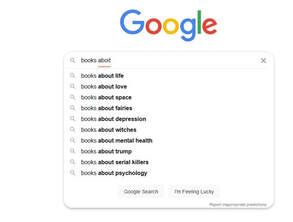 Many readers like following a series, so if your book is part of a series, even if it is only the first, make sure you include “…. book series” as one of your keyword strings eg Sci-fi book series. And if you aren’t getting the results you expected after a few weeks (you have to give things time to produce results), you can try some different strings and see how they work. Importantly, though, if your books use those keywords strings on Amazon (and other retail sites), they will also be picked up by Google if someone searches there for your books. So, you can try doing your searches there first and make use of Google’s better predictive search term capabilities. "The use of the right keywords is also a factor when you use SEO for social media." The use of the right keywords is also a factor when you use SEO for social media. As we said at the start of this blog, we aren’t experts in SEO, so we went looking for people who are and we came across this blog, which contains the key messages.  People do search social media using keywords and hashtags, so having the right keywords and hashtags in your posts will help them find you. Every day Twitter tells you what keywords and hashtags are “trending”, so you can join in the conversations if you are interested in those topics. It’s unlikely that your keywords or hashtags will ever trend, but some of those trending topics may be of interest to your target audience so RT’ing the best of the posts will help with your engagement. But for you, it is using the right keywords or hashtags in your posts so when people do searches on social media using those words, they will find your posts amongst the results. There will still be a crowd of course. If you write romance, then #romance is a hashtag that produces a lot of search results. So, you have to use something a bit more targeted, such as #periodromance or #modernromance. There’s still going to be a crowd, but it will be a smaller crowd. 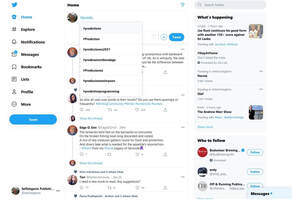 You can also create and use hashtags of your own. If your Tweets are RT’d, those hashtags will become better known over time. Your audience will start to recognise them and they will, perhaps, think of using them for searches. Remember: all hashtags started with someone creating them. Some never catch on, some are still in use years later. Finding hashtags that are already in use is easy enough. When you use the # symbol, predictive text starts to offer you choices of previously used tags. But you won’t know which ones are most popular amongst users. Just because hashtag has been used, it doesn’t mean it is useful. 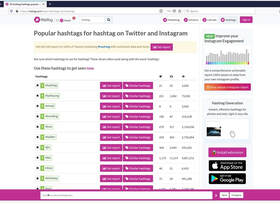 There are websites that will help you to choose the right hashtag. We use Ritetag, which is free. As well as showing you which hashtags are already being used and how visible they are, if you create your own hashtags you can look on Ritetag a few weeks later and see what sort of visibility you are getting. Just one final word on hashtags. Social media users comment on how distracting they are, so the experts advise never using more than three in any post and placing them at the end of the message, rather than within the main body of the text. I was reminded of this just a few moments ago when I was on Twitter and came across a Tweet that was mainly made up of hashtags and immediately scrolled past it. "Knowing how your hashtags are working is useful information" Knowing how your hashtags are working is useful information. If they aren’t working, you need to find a way of promoting them or you need to change them.  Measurement is usually regarded as the boring part of marketing. Besides, there’s only one measurement that you are interested in – book sales. But measurement is pretty important when it comes to creating a successful social media marketing campaign. If you are going to do this well, you are going to start your campaign weeks or even months in advance of your book’s publication. That is a long time to wait to find out that your social media campaign isn’t working. So, you need to measure other things along the way to tell you if you are on the right track.  Think about a long car journey. One way to measure your journey’s progress is to read the road signs and see how far you are from your destination and, if your destination isn’t shown on the sign, how far you are from the next town along your route (known by navigators as a “waypoint”). If you are using a satnav this information is constantly on display, along with an estimated remaining journey time – so you are quite used to doing this sort of measurement. Unfortunately, there is no equivalent of a satnav for your social media marketing so you will have to set up your own measurement system and your own “waypoints”. If you are on the right track – great. But if you aren’t, it isn’t too late to re-think your campaign and try a different approach. In your car journey you might change your route to avoid traffic congestion at some road works and this is no different. Sometimes it only needs a slight tweak to the wording of a message to produce better results.  I’ll give you a real-life example. As part of our generic marketing (rather than targeting a specific title), we Tweet a different “Book of the Day” each day. For a long time, this wasn’t producing much in the way of interest – hardly any re-tweets (RTs) or “likes” and even fewer click throughs to Amazon. These are three of our measurements, used to assess if we are catching Twitter users’ interest. Then one of our colleagues mentioned how hard it was to read some Twitter posts on her phone. The text was so tiny that it was unreadable. She showed me the Tweet and I had to agree with her. I suggested she expand the image, but she said she didn’t have time to mess about like that. "The text was so tiny that it was unreadable" The penny dropped with a very loud clang. That was what was wrong with our images. People use social media a lot when they’re on the move: trains, buses etc so a lot of our Tweets will be viewed on phones and the images we were using weren’t readable on a small screen. So, we changed the format of the Tweets. We made the wording bolder and more eye catching and, instead of using our own image, we let the link connect to Amazon, which then showed the cover image within the Tweet but made it more prominent.  The results were almost instantaneous, with more likes and RTs being recorded. But, thanks to Twitter’s analytics we could see we were also getting more click-throughs to the Amazon sales pages. And then we saw that sales were going up. But if we hadn’t been measuring likes and RTs in the first place, we wouldn’t even have known we had a problem. We use different measurements to establish what levels of engagement we get on this website and we see how different messages on social media result in traffic arriving here. If you clicked on a link on Twitter to read this blog, you will appear in our measurements. Not by name of course, that would breach data protection laws, but you are there in “number of clicks” on Twitter analytics and we also measure the number of visitors we get to this website.  So, measurement may be boring, but it can make the difference between a lot of wasted time and a successful marketing campaign. There is one word of warning, however. You don’t fatten a pig by weighing it (apologies to vegans, Jews and Muslims, but its just a metaphor). In other words, there is such a thing as too much measurement. Business people talk about the “vital few”. These are the critical measurements that tell you how you are performing. It is very easy to let the vital few become the irrelevant many. You can use some measurements for a quite a limited period of time. For example, the only time you are really interested in knowing how many followers you have on Twitter is when you start to establish your social media presence. Once you have a reasonable level of followers all you need to do is check back from time to time to make sure you haven’t lost too many. "work out what you need to measure and when" So, work out what you need to measure and when. At other times, you can let those measurements drift down the priority list and promote some that are becoming more relevant. Measurement is supposed to inform strategy, so if you don't measure or you measure the wrong things, you can't know if you have the right strategy.  This brings us towards the end of this series of blogs. We have discussed the 6Ps of the marketing mix:
We have also suggested a few things that you don’t do, such as blasting out generic Tweets in the hope of catching someone’s eye. And, especially, not paying someone else to do that for you. Hopefully you will now feel more comfortable about trying things for yourself. You will make mistakes – everybody does. Just make sure you learn from them and don’t repeat them. Future blogs are going to be on a wide range of publishing topics and we’ll be hosting guest blogs and posting book reviews (not of the books we publish). So do keep checking back to see what we are doing. As it happens, next week we're posting reviews of 2 books by the same author, each of which is very different in content. And don’t forget to check out our "Books" tab to find out what books we offer. If you have enjoyed this blog and found it informative, make sure you don't miss an edition by signing up for our newsletter. Just click the button. |
AuthorThis blog is compiled and curated by the Selfishgenie publishing team. Archives
January 2025
|
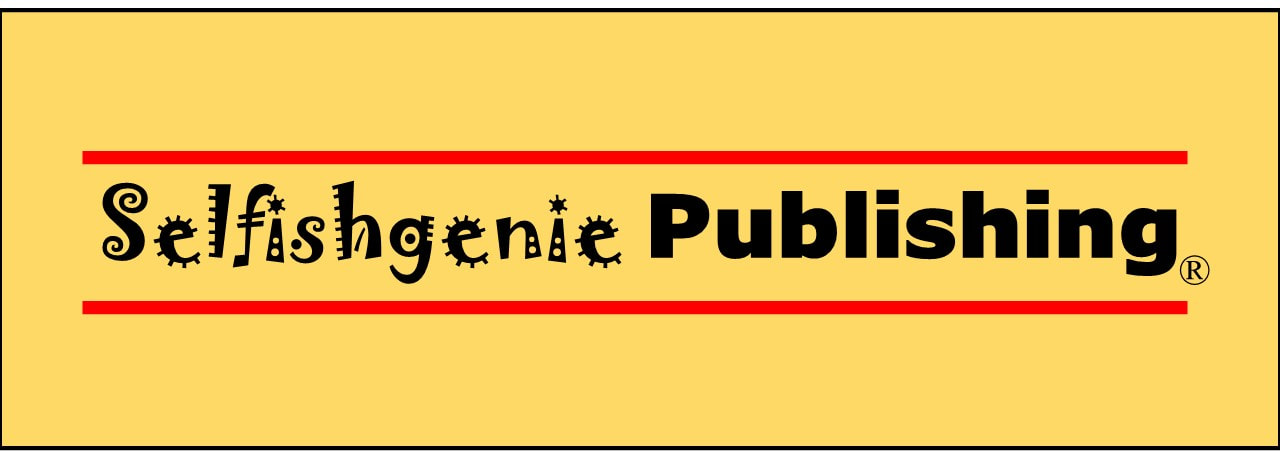



 RSS Feed
RSS Feed